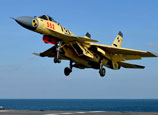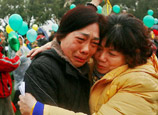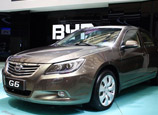
Africa has not been overly affected by the financial crisis in Europe and the slowdown in the U. S. economy partly because of the strong local demand that is driving economic growth.
Africa is also benefiting from commodities price boom partly triggered by demand for commodities in China and India.
The continent also holds the world's largest deposits of unexploited minerals.
African economies are now relatively better managed compared to two decades ago with the political leadership showing passion to achieve socio-economic development.
The continent is expected to have 2 billion people by 2030. Some BRICS members like China have already experienced the value of doing business with Africa, with the value of China-Africa trade in 2012 expected to hit 200 billion U. S. dollars from 40 billion dollars in 2005.
Rob Davies, South Africa's Minister for Trade and Industry, sees BRICS interest in Africa as an opportunity that the continent should use for industrialization. BRICS countries present chance for Africa to adopt technologies that have been tested and used in other countries to facilitate industrialization.
As a basic start, he said, the continent must start large scale value addition of its agriculture produce, minerals and manufacture of pharmaceuticals.
"The other BRICS countries have an advantage of industrialization because they have large domestic markets. Economic integration efforts in Africa will also afford us that large market," he said.
He expressed optimism that the ongoing efforts for a grand free trade area encompassing the Common Market for Eastern and Southern Africa (COMESA), the East Africa Community (EAC) and the Southern Africa Development Community (SADC) are expected to be completed by mid-2014 to create a market for 600 million people.
"We have an opportunity to create that critical mass that can drive our industrialization," he said. "From BRICS, we seek a partnership to strengthen productive opportunities in Africa."
Africa sees BRICS as an opportunity to diversify its markets and sources of financing from the West and the West-controlled financial institutions like the International Monetary Fund and the World Bank.
Donald Kaberuka, the President of the Africa Development Bank, said BRICS represents a changing world, as gravity and power gradually shift from the North to the South, and from the West to the East.
"The relationship between Africa and the BRICS has grown dramatically, with trade levels increasing ten-fold in ten years, to a value of some 340 billion dollars a year. And Africa itself is the lynchpin of the trade triangle with Asia and South America. Africa-China trade last year was 20 times what it had been at the turn of the century," said Kaberuka in a statement.
"The BRICS countries are already part of the African infrastructure solution. We see this in everything from Brazilian road and rail investment through Vale in Mozambique, to Indian telecommunications investment through Bharti Airtel in Chad, to Chinese investment through its Railway Engineering Cooperation Group and Sinohydro in road, rail and health infrastructure in the DRC. We could say the same many times over, with different examples in different countries," he added.


















 6 Danes probed for drunkenly urinating on an elevated road in full view
6 Danes probed for drunkenly urinating on an elevated road in full view


![]()
